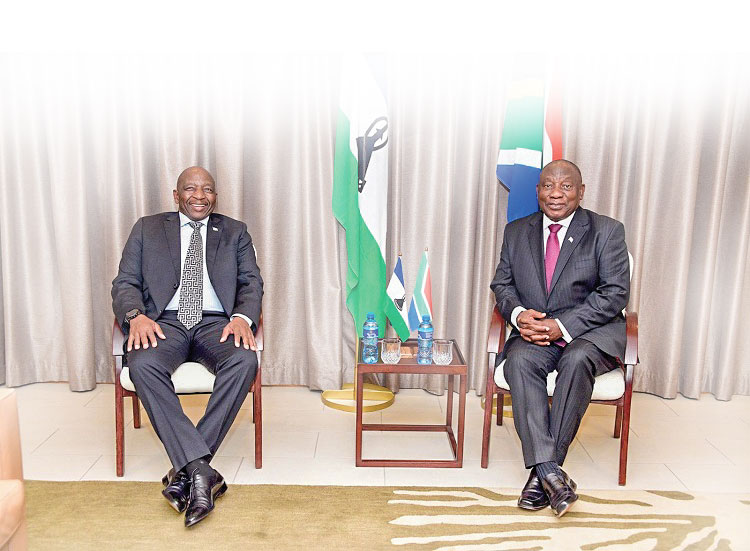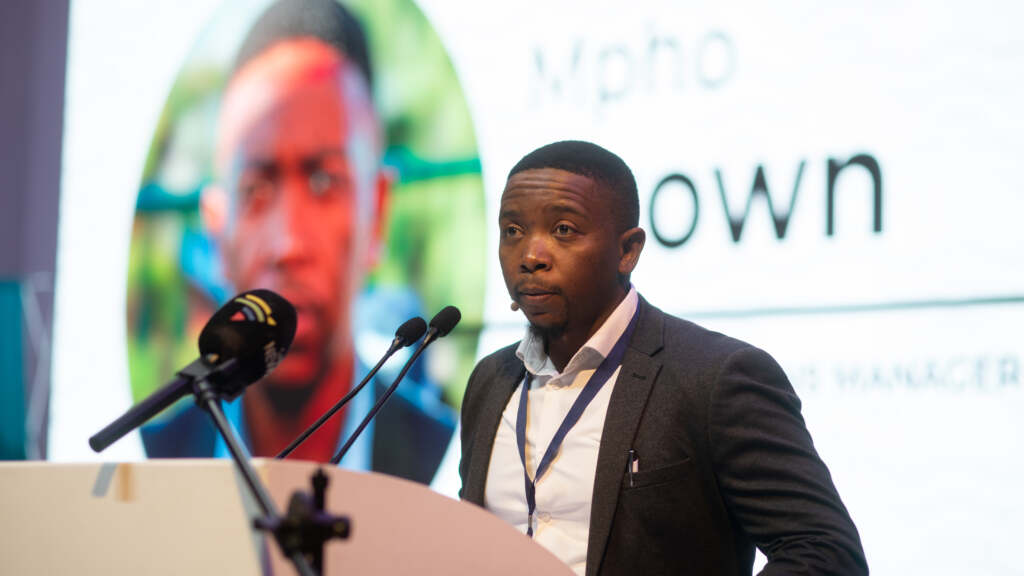… Thousands of Basotho ex-miners left in limbo
In a move that has left thousands of Basotho ex-miners and their families in limbo, South Africa has indefinitely put on hold all claims for compensation by Lesotho and other foreign nationals, citing “verification process challenges.”
This shocking development was revealed in an email from Thembisa Mama, Director at the Compensation Commissioner for Occupational Diseases, to Rantšo Mantsi, Executive Director of the Ex-Miners Association.
“Good day Mr. Mantsi. Please be informed that the Commissioner has put on hold all Lesotho/foreign claims due to verification process challenges with banks and courts. We will give an update as soon as this is resolved,” Mama wrote curtly in the email sent on Tuesday.
This sudden freeze has dashed the hopes of thousands of Basotho who worked in South Africa’s gold mines under gruelling conditions and later filed claims for silicosis compensation through the Tshiamiso Trust.
The trust, which has been in existence since February 2020, was created to give effect to the R5 billion settlement agreement between African Rainbow Minerals, Anglo American South Africa, AngloGold Ashanti, Harmony Gold, Sibanye Stillwater and Goldfields and claimant attorneys in the landmark silicosis and TB class action lawsuit.
It is responsible for compensating all eligible current and former mineworkers across southern Africa with permanent impairment due to silicosis or work-related TB, or their dependants where the mineworker has passed away.
The Trust, tasked with compensating eligible mineworkers and their dependents, last month acknowledged significant challenges in processing claims from Lesotho.
It reported difficulties in reaching over 1,800 former mineworkers in the country who urgently need Benefit Medical Examinations (BMEs) to determine the presence and extent of qualifying diseases. Tshiamiso Trust CEO Dr. Munyadziwa Kwinda expressed “deep concern” over the inability to contact claimants and called for immediate action to address the issue.
“Currently, we have over 1,800 former mineworkers who urgently need to be scheduled for BMEs. Without these examinations, their claims cannot progress. We are also struggling to reach many claimants who need to submit additional documentation,” Kwinda admitted.
But the Trust’s explanations and appeals ring hollow to many.
The bureaucratic and logistical hurdles, coupled with South Africa’s decision to freeze claims, suggest a disturbing lack of urgency and accountability in fulfilling promises made to vulnerable ex-miners.
The numbers speak volumes
The scope of the crisis is staggering. As of now, the following regions in Lesotho have significant numbers of claimants awaiting BMEs:
| Region | Awaiting Claimants |
| Mafeteng | 350 |
| Mohale’s Hoek | 160 |
| Quthing | 148 |
| Maseru | 144 |
| Qacha’s Nek | 256 |
| Mokhotlong | 77 |
| Teyateyaneng | 160 |
| Hlotse (Leribe) | 216 |
| Butha-Buthe | 226 |
| Thaba Tseka | 90 |
Yet, despite these numbers, the Trust has announced that lodgement offices in Teyateyaneng and Butha-Buthe will cease operations by November 30, 2024, leaving claimants with even fewer avenues for assistance.
Blame the victims?
Dr. Kwinda partially blamed the claimants, suggesting that those who changed their contact numbers without updating the Trust were creating “a significant barrier.”
This statement has sparked outrage among ex-miners and advocacy groups, who argue that the onus should not fall on impoverished claimants but on the Trust to establish effective communication channels.
“This is just another example of South Africa’s systemic neglect of foreign workers who toiled in its mines,” said Bokang Sehloho yesterday. Sehloho’s father, allegedly died of TB in 2004.
He added: “Many of these people sacrificed their health and lives for the prosperity of South African mining companies, and now they are being abandoned.”
The bitter irony
While the Tshiamiso Trust continues to issue guidelines and eligibility criteria, the lived experiences of former miners tell a different story. These men and their families face bureaucratic indifference and financial despair, unable to access the compensation they are rightfully owed.
For living mineworkers, permanent lung damage caused by silicosis or TB should qualify them for compensation. For deceased miners, their families must prove death from work-related illnesses, a requirement that is both emotionally and administratively taxing.
The Trust’s reassurances of “thorough assessments” are small comfort to those trapped in a cycle of poverty and neglect. “We were promised justice and dignity, but all we get are excuses,” said Sehloho yesterday.
Summary
- In a move that has left thousands of Basotho ex-miners and their families in limbo, South Africa has indefinitely put on hold all claims for compensation by Lesotho and other foreign nationals, citing “verification process challenges.
- The trust, which has been in existence since February 2020, was created to give effect to the R5 billion settlement agreement between African Rainbow Minerals, Anglo American South Africa, AngloGold Ashanti, Harmony Gold, Sibanye Stillwater and Goldfields and claimant attorneys in the landmark silicosis and TB class action lawsuit.
- It reported difficulties in reaching over 1,800 former mineworkers in the country who urgently need Benefit Medical Examinations (BMEs) to determine the presence and extent of qualifying diseases.

Authored by our expert team of writers and editors, with thorough research.









